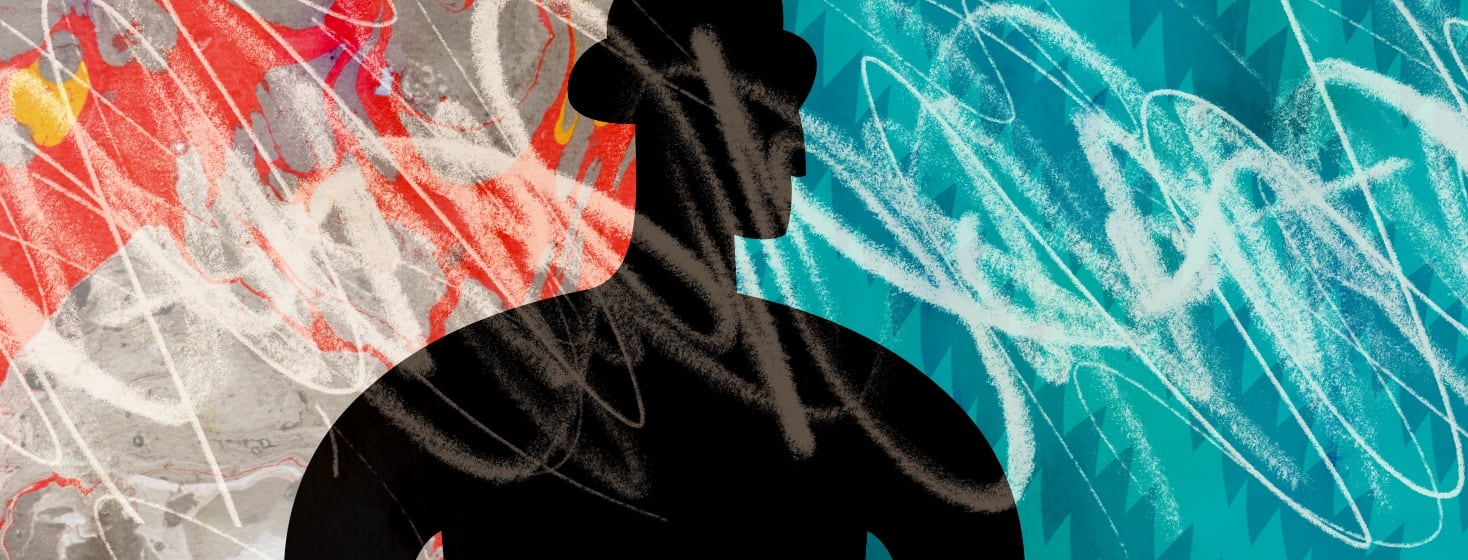RA and the Two Types of Pain
![]()
Ugh. Pain. It’s... painful! As I write this, I’m sitting here in the special kind of pain that affects people with rheumatoid arthritis (RA) and chronic illness more than most others. It’s a unique feeling and, like a haircut by mom – no matter what you try to make it better it only makes it much, much, worse.
RA pain: a different level of discomfort
It’s difficult for anyone who doesn’t experience the constant pain from rheumatoid arthritis or any of the related chronic illnesses to understand exactly what it’s like to live with that type of discomfort. It’s like living with the absolute worst roommate in the world. You can’t get rid of them because you may end up in a worse situation. And, no matter how many times you fill the refrigerator with their favorite food, they never, ever, return the favor.
So, you do your best to tiptoe around your own life in order to prevent upsetting them because, oh boy, when that happens? It gets really bad, really fast. Like pooping into a bag and putting it inside a light fixture bad (this is a real roommate horror story - Google it.)
Acute RA pain
Before we go any further, though, let’s go over the two types of pain once more. You know, just for fun! Pain comes in two flavors, like family. You have your in-laws and your biological family. Your in-laws come around from time to time, and it hurts. That’s like acute pain.
It doesn’t stick around very long though, thankfully, and tends not to leave too many lasting scars. Also, if you take the proper precautions and plan ahead, you can minimize the chance of them causing you too much inconvenience. Like finding the nearest Holiday Inn. Or, the nearest alley behind the Chinese food restaurant. Whichever.
Chronic pain is unpredictable
Now chronic pain, on the other hand, is a different animal. Chronic pain is more like your biological family. They are always there, in the background, lurking, ready to pounce and ask to borrow your car or co-sign a mortgage.
You never know quite when it’s going to hit, but you know that it will at some point, and it’s always going to be a fiasco. That uncertainty causes stress and keeps you on high alert 24/7. That stress almost always leads to a deterioration in wellness.
Now, your family is, well, your family, so it doesn’t hurt intensely like your in-laws do because you’re used to it and you have been dealing with them for many years. It’s more like a “princess and the pea” situation – it’s there, it causes discomfort, but you can’t really put your finger on the cause and eliminate it. As for long-lasting scars, well...sounds like family to me.
How the brain treats chronic pain
Don’t like my metaphor? Well, acute pain and chronic pain have been studied before and the brain does treat them differently.
Chronic, long-term pain is more closely related to something like depression than it is to breaking an arm or stubbing a toe, and it needs to be treated differently. Some doctors have likened it to PTSD.
The worst part about chronic pain is that just like your grandpa, it doesn’t stay in its own lane when driving down the pain parkway. The low-grade pressure and pain fester for sometimes weeks at a time, and drains energy, saps resolve and makes a patient physically exhausted.
Emotional differences
Beyond the physical, there’s the emotional difference between chronic and acute pain. If you say, break a finger, it hurts and you may miss out on a few weeks of typing or playing pitcher for the big game versus those awful Whoville Hornets. While not being on the field for that championship game may sting a bit, it’s more or less a short-term issue that will be forgotten within a few weeks.
Chronic pain, on the other hand, is so closely and frequently tied to loss in the patient’s life that it is nearly inescapable and weighs on the mind constantly. Missing out on work, having to skip out on birthdays and celebrations, not being able to live up to the expectations of a romantic partner – these are all emotional scars that frequently come along with chronic pain.
Isolation
This brings us to another aspect of chronic pain from RA or another chronic illness – isolation. Chronic pain isolates. In fact, acute and chronic pain can produce opposite results when it comes to drawing people closer or pushing them away.
A significant other will often feel sympathy and go out of their way to help with an acute injury. But, chronic pain and long-term discomfort many times end up pushing partners away and causing insurmountable stress in relationships. Like the guy at the bowling alley that is just a little bit too much in love with bowling, chronic pain makes others uncomfortable for reasons you can’t quite put your finger on. And eventually, you both just want to finish your soggy chicken fingers and go your separate ways.
Pain is complicated
Pain is complicated and especially so for those of us suffering from RA and other chronic illnesses. The first step to understanding this kind of pain is to realize how different it is from the regular, everyday, kicked-in-the-shin-by-your-not-at-all-annoying-five-year-old-niece pain. Chronic pain needs to be categorized and treated differently, so those of us who suffer from it can lead better lives. Talk soon.

Join the conversation